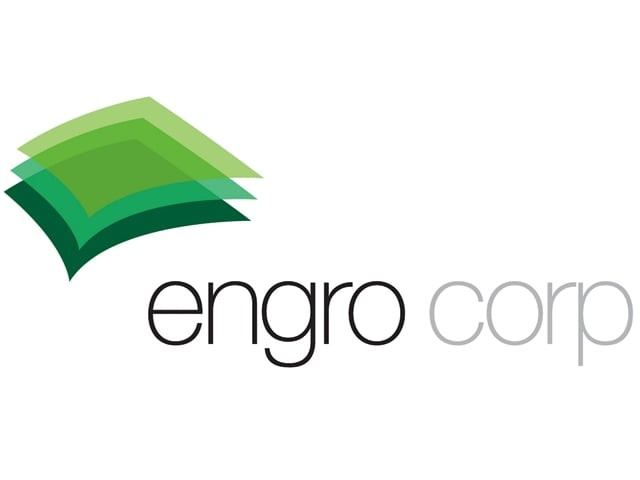Engro eyes telecom towers, construction materials
Research predicts company shares to hit Rs490 by Dec 2024


design: Ibrahim Yahya
Engro Corporation, a conglomerate of companies, is set to expand primarily in shared mobile phone towers and construction material businesses, anticipating a potential reduction in borrowing costs from banks. The conglomerate’s flagship fertiliser manufacturing project is expected to benefit from the Petroleum Policy 2012, enabling it to pass on the impact of expensive gas to end-consumers. However, Engro is currently in negotiations to sell part of its shareholding in the thermal energy business to Liberty Power, with the deal estimated to earn Rs30-40 billion, likely to be shared with shareholders.
In a comprehensive update on the conglomerate’s businesses, Topline Research encourages investors to buy its stocks, citing that the sale of thermal assets would unlock values for shareholders. Enfrashare, a subsidiary of Engro, plans to extend its tower network by adding approximately 750 towers annually, aiming to reach around 8,000 towers by the end of 2028. The business has shown progress in the last 5 years, achieving a portfolio of 4,000 towers by the end of 2023. Despite an expected loss of Rs1.7 billion in 2023 due to record-high interest rates, projections indicate a shift to profitability by 2026 as interest rates decline.
The research anticipates a decline in the average 6-month KIBOR (Karachi Inter Bank Offered Rate) from 21.6% in 2023 to 18.7% in 2024 and 17% in 2025, expecting Enfrashare’s losses to decrease to Rs0.1 billion in 2024, turning into profits of Rs1 billion in 2025 and Rs3.6 billion in 2026. In anticipation of a decline in interest rates in 2024, the research envisions a pickup in construction activities, leading to an increased demand for PVC, a raw material for plastic construction material. The expectation is that Engro Polymer and Chemicals Ltd.’s (EPCL) PVC sales will increase at a 5-year CAGR (compound annual growth rate) of 5% to 285,000 tonnes by 2026.
The current annual capacity of PVC is 295,000 tonnes, with discussions indicating that the site has the potential to increase production to 400,000 tonnes by incurring optimal capital expenditure. Engro has entered discussions with Liberty Power to reduce its exposure in thermal energy assets, including Engro Powergen Qadirpur (EPQL), Engro Powergen Thar Limited (EPTL), and Sindh Engro Coal Mining Company (SECMC).
Read Engro Polymer delays hydrogen peroxide project
“Based on channel checks, Engro is planning to sell the majority of its stake in thermal assets for a cash consideration of around Rs30-40 billion. The net cash inflows after tax are estimated to be Rs26 billion (Rs48/share),” reads the research. Assuming no major projects and considering the history of paying all excess cash as dividends, the research anticipates the corporation announcing a one-time special dividend of Rs45/share in 2025, bringing the total dividend to Rs91/share for the year.
According to the research, Engro Fertiliser is poised to emerge as the primary beneficiary of the implementation of the Weighted Average Cost of Gas (WACOG) mechanism. The fertiliser manufacturer is currently being charged $5.6/mmbtu (Rs1,600/mmbtu) under the Petroleum Policy 2012 (PP-12) on the feed gas at its base plant, accounting for 40% of its total urea production compared to other fertiliser players at $2/mmbtu (Rs580/mmbtu).
Given that Engro is already procuring 40% of its total gas required in feed gas at higher rates, the increase in urea price post WACOG implementation, in line with other players, is expected to have a positive impact of Rs6/share on its bottom line. The research house’s Dividend Discount Model (DDM)-based targeted price of Rs490/share offers a potential upside of 63%. If WACOG implementation is delayed, Engro still remains a buy with a target price of Rs430/share, indicating a 43% upside, says the research house.
With an attractive estimated dividend yield of 20% for 2024 and 31% for 2025, surpassing the universe dividend yield of 10% for 2024 and 12% for 2025, Engro is currently trading at a 2023E/2024F PE of 4.8-multiple and 4.0-multiple, respectively. This is compared to the last 5-year and 10-year average price to earnings (PE) of 8.4-multiple and 10.9-multiple, respectively.
However, key risks to the investment include higher-than-expected delays in the conclusion of divestment of a majority stake in thermal energy assets, delays in WACOG implementation, a significant drop in international urea prices, and lower-than-expected declines in interest rates. “These risks may not impact the current base performance but rather dent the potential upside mentioned,” says Topline Research.
Published in The Express Tribune, January 9th, 2024.
Like Business on Facebook, follow @TribuneBiz on Twitter to stay informed and join in the conversation.



















COMMENTS
Comments are moderated and generally will be posted if they are on-topic and not abusive.
For more information, please see our Comments FAQ